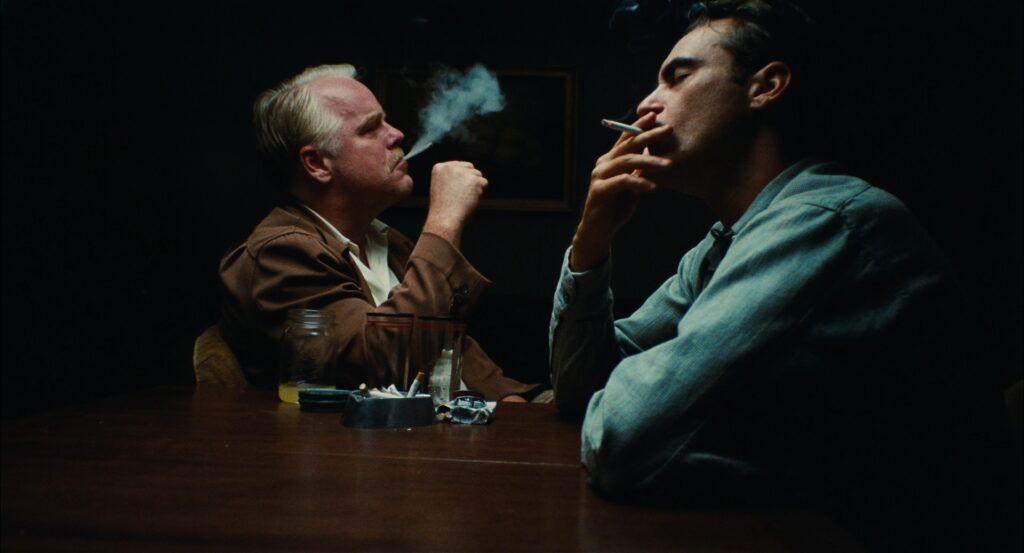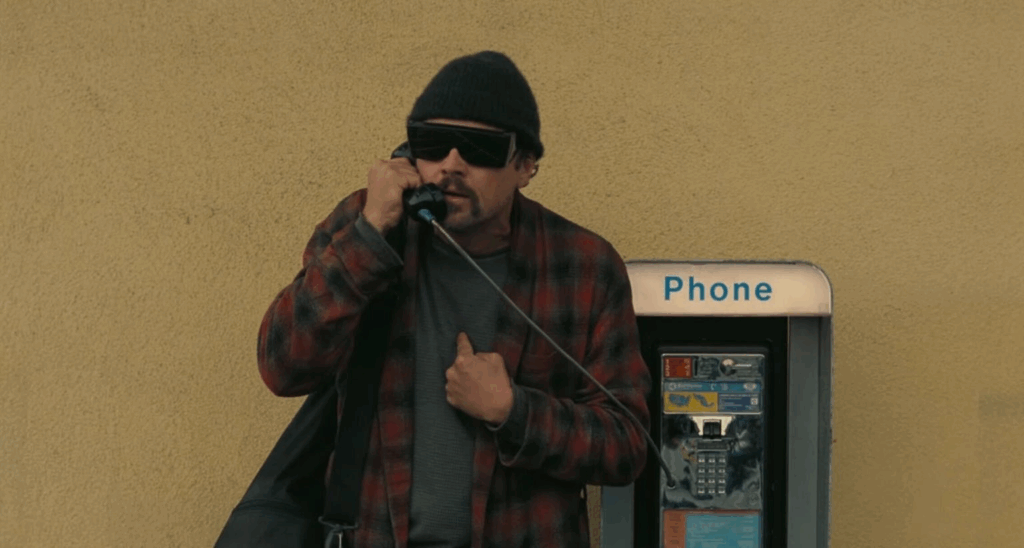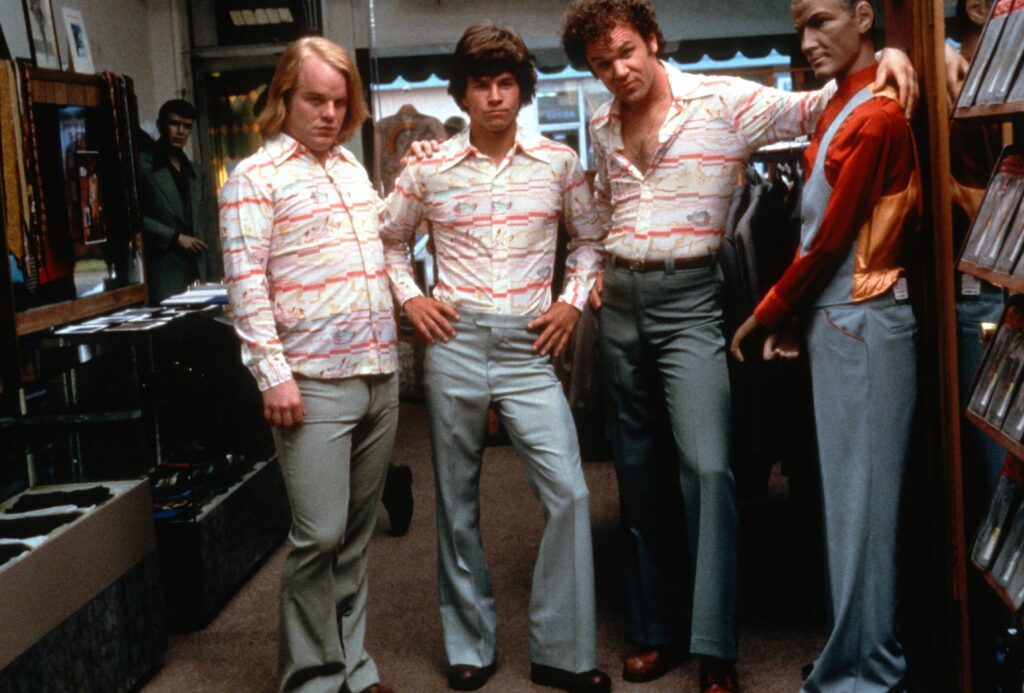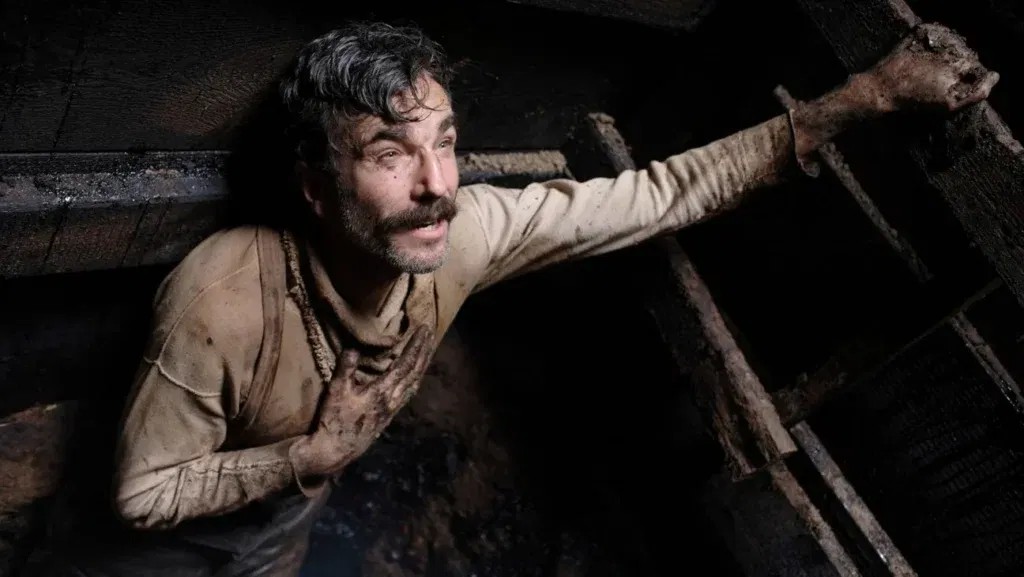As the enfant terrible of Hollywood, Paul Thomas Anderson has always enjoyed a certain degree of respect from certain niche circles of Hollywood. Critics and cinephiles love his films, fans worship the ground he walks upon, and directors like Quentin Tarantino consider him his only worthy rival and the best filmmaker working today.
And yet, Paul Thomas Anderson has no Oscar to show for his 30 years of contribution to the film industry. Perhaps his films are too unconventional for the Academy’s liking, or he may be too focused on the artistic and historical value of his work rather than their box office appeal. But the crux of the issue remains: the Academy’s blatant refusal to recognize the merit of his oeuvre.
The Nonconformity of Paul Thomas Anderson’s Films



One of the things that makes Paul Thomas Anderson’s films stand out from his contemporaries is his refusal to play by the rules. Since the very beginning, his films have been bold, complex, layered, and provocative, with exceptionally well-written and dynamic character arcs. Even in an ensemble setting, none of the characters feels short-changed or gets lost in the sprawling, expansive plot.
However, these characters are often disturbing, difficult, and confrontational, like Daniel Day-Lewis in Phantom Thread, Tom Cruise in Magnolia, Joaquin Phoenix and Philip Seymour Hoffman in The Master. Moreover, the subversive and non-linear nature of his stories makes the Academy turn away from films like Magnolia and instead delegate the honor to more “prestigious” and straightforward stories like American Beauty and The Cider House Rules.
P. T. Anderson’s Films Lack Box Office Appeal

In the age of billion-dollar box office cashouts, Paul Thomas Anderson’s films have never earned anything close to $100 million. His most commercially successful film is the 2007 epic, There Will Be Blood, which grossed $76.4 million in worldwide collection.
While it may not be a matter of much concern, the Academy is heavily influenced and easily swayed by surging mass opinion and the public reception of a film.
Case in point: the Barbenheimer phenomenon largely moved the conversation in favor of Greta Gerwig‘s ham-handedly delivered “feminist” movie while blatantly ignoring more worthy films like Past Lives, Anatomy of a Fall, May December, and A Thousand and One, which explore the complexities of womanhood with more severity and introspection than Barbie.
Boogie Nights May Have Colored the Academy’s Opinion

At 17, Paul Thomas Anderson wrote a story about Dirk Diggler, a fictional p*rnstar, and his rise and fall in the adult film industry. At 27, he directed Boogie Nights based on the same. As his sophomore, breakout film, this was a bold choice, to say the least, when it comes to making an impression as an up-and-coming filmmaker. And let’s just say, the impression never left the Oscars.
The eccentric, subversive, and unconventional plot of Boogie Nights may have tagged P.T. Anderson as a risky wild-card contender at the Oscars right at the beginning of his career.
Whether or not there is any validity to this theory is up for debate. However, considering the conservative image of the Academy and their easy willingness to steer away from anything controversial and political, it is certainly believable that a film like Boogie Nights would count as a red mark in Anderson’s career.
Competition Against Other Masterpieces Released in the Same Year

What uncanny timing for two of the greatest films of the decade – the century, in fact – to be released in the same year. There Will Be Blood and No Country for Old Men were worthy contenders, and the only films that could challenge each other to a fair competition. One cannot begrudge the Coen brothers for taking home the big awards for their violent yet iconic Western masterpiece.
As for Anderson’s other works, it is exhausting to see how all of his releases always seem to line up with the most competitive years in Academy history:
1997: Boogie Nights against Titanic, Good Will Hunting, LA Confidential, As Good As It Gets.
1999: Magnolia against The Green Mile, American Beauty, The Cider House Rules, and The Sixth Sense.
2002: Punch-Drunk Love against The Lord of the Rings: The Two Towers, The Pianist, and Gangs of New York.
2012: The Master against Argo, Zero Dark Thirty, Les Misérables, Silver Linings Playbook, Django Unchained, Lincoln, and Life of Pi.
2014: Inherent Vice against Whiplash, American Sniper, Birdman, The Grand Budapest Hotel, Boyhood, The Imitation Game, and The Theory of Everything.
2017: Phantom Thread against The Shape of Water, Darkest Hour, Dunkirk, Three Billboards Outside Ebbing, Missouri, The Post, Call Me By Your Name, Get Out, and Ladybird.
2021: Licorice Pizza against Coda, King Richard, Dune, The Power of the Dog, West Side Story, Belfast, Don’t Look Up, and Nightmare Alley.
Anderson’s upcoming film, One Battle After Another, starring Leonardo DiCaprio, Teyana Taylor, Benicio Del Toro, and Sean Penn, is also set to face similarly impressive competitors: Bugonia (Yorgos Lanthimos), Hamnet (Chloé Zhao), Sinners (Ryan Coogler), A House of Dynamite (Kathryn Bigelow), and Frankenstein (Guillermo del Toro).
P. T. Anderson May Be Too Ahead of the Curve

Arguments in Paul Thomas Anderson’s favor often point out how even Martin Scorsese hadn’t won an Oscar until The Departed (2006), which was to be his first and only Best Director win, ignoring all other seminal masterpieces from Taxi Driver to Goodfellas to The Wolf of Wall Street.
More surprisingly, Stanley Kubrick and Alfred Hitchcock, popularly hailed as two of the greatest auteurs of the film industry, never won a single Oscar. A Reddit post puts it succinctly, claiming that for directors who are too far ahead of their time, these snubs may not matter as much as one might think:
Despite the lack of a trophy, Anderson’s films still retain their value and will continue to be exceptional in their own right. However, the fact remains that the Oscars are a critical milestone that elevates a film and its director. Without it, a masterpiece is relegated to the same ranks as badly made schlocks or big-budget disasters.
One Battle After Another is currently 98% fresh on Rotten Tomatoes and is the highest-rated film of P.T. Anderson’s career.
Do you think DiCaprio can finally help lift the Oscars curse in Paul Thomas Anderson’s One Battle After Another? Share your opinion in the comments below.
One Battle After Another will premiere on 26 September 2025.




